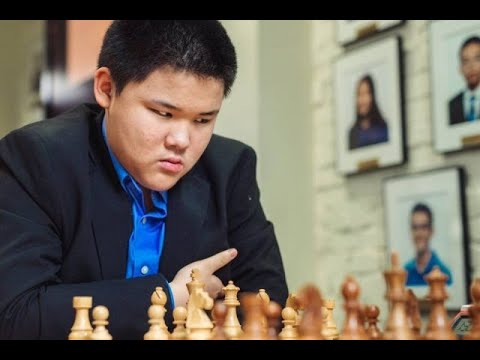In the rarefied atmosphere of professional chess, where grandmasters often embody a stoic intensity, Awonder Liang emerges as a refreshing anomaly. While many of his peers navigate tournaments with a laser focus that precludes casual media interactions – world champion Gukesh Dommaraju being a prime example – Liang greets the press with smiles and jokes, a testament to his unique philosophy: playing chess should be fun.
A Prodigy`s Untrodden Path
Liang’s journey began with the familiar trajectory of a chess prodigy. At just eight years old in 2011, he became the youngest American to achieve a 2000 ELO rating. By 2015, he was the nation`s youngest International Master, and in 2017, at the tender age of 14, he earned the coveted Grandmaster title. He was, by all accounts, on a fast track to the sport`s summit.
However, the relentless pursuit of elite status began to take its toll. Liang candidly admits that the pressures led him to a pivotal re-evaluation of his relationship with chess. “Chess is a very important part of your life,” Liang once reflected, “but it can`t really be everything because otherwise it`ll kind of affect how you feel on day to day. And that`s not… that`s not very healthy.” This realization spurred a conscious shift: chess would remain a passion, but not his sole identity or source of validation. Today, with a classical ELO rating of 2696, Liang balances his high-level chess ambitions with a career as a finance professional—a striking contrast to the full-time dedication expected of most top players.
The Chennai Grand Masters: A Learning Expedition
The Chennai Grand Masters 2025 marks Liang`s return to a major tournament after more than a year, and his visible happiness to be there is infectious. Unlike many grandmasters who would scoff at playing in local open games for prize money as modest as $100, Liang embraces them, driven purely by his love for the game. This unconventional approach has, perhaps ironically, kept his passion alive, while others might find themselves consumed by the competitive grind.
During the tournament, Liang faced a lineup of formidable opponents, including Arjun Erigaisi, Vincent Keymer, Anish Giri, and Vidit Gujrathi. His pre-tournament jest about “donating rating points” to Arjun Erigaisi, delivered with a chuckle, proved prophetically amusing when the drawing paired him with Erigaisi in the opening round. “You`ve got to be careful what you wish for,” he quipped after the fact, acknowledging his defeat gracefully. Despite finding a promising position early in the game, a few crucial mistakes later led to his resignation, a moment he attributed simply to Erigaisi being “a bit too good.”
Bridging the Gap: The “Extra Mile”
Liang readily admits that his preparation differs significantly from the top-tier players he now faces. While he possesses an innate talent for discovering interesting opening ideas, he often finds himself unsure of the subsequent follow-ups – a gap he attributes to the deeper, more rigorous preparation of the absolute elite. Playing against these seasoned competitors has been a profound “learning curve,” providing him with invaluable insights. He specifically highlighted Arjun Erigaisi`s “level of preparation and his focus on the board” as a massive eye-opener.
Indeed, sitting across the board from players he has long admired and observed in elite tournaments is an experience Liang does not take for granted. “It`s a whole different experience when you`re sitting on the board and there`s kind of no one else there to help you. It`s just you against the other guy,” he explains. This direct engagement, combined with opportunities for casual conversation, fuels his inspiration.
Looking ahead, Liang`s “next step” is clear, though perhaps nuanced by his overarching philosophy. He speaks of “going the extra mile” – moving beyond simply finding chess “fun and interesting” to doing the “necessary” work required for sustained success at the highest level. Yet, his commitment to enjoyment remains paramount. At 22, he sees himself still on a learning curve, eager to absorb wisdom from his peers without resorting to shortcuts.
A New Model for Success?
Whether this balanced approach will propel him to the very apex of chess remains an open question, one Liang himself acknowledges with a characteristic blend of humility and determination. “Maybe they`re so far ahead that it`s going to be very difficult for me to catch them,” he muses. “My attitude in life is always that you can`t really control the other things, right? So, you just have to focus on yourself. And have fun doing it.”
In a sport often defined by relentless ambition and solitary dedication, Awonder Liang offers a compelling alternative. His joyful presence and unwavering commitment to well-being suggest that true success isn`t just about ELO ratings or titles, but about finding enduring passion and balance. At the Chennai Grand Masters 2025, it’s clear no one is having quite as much fun just being around as Awonder Liang.

